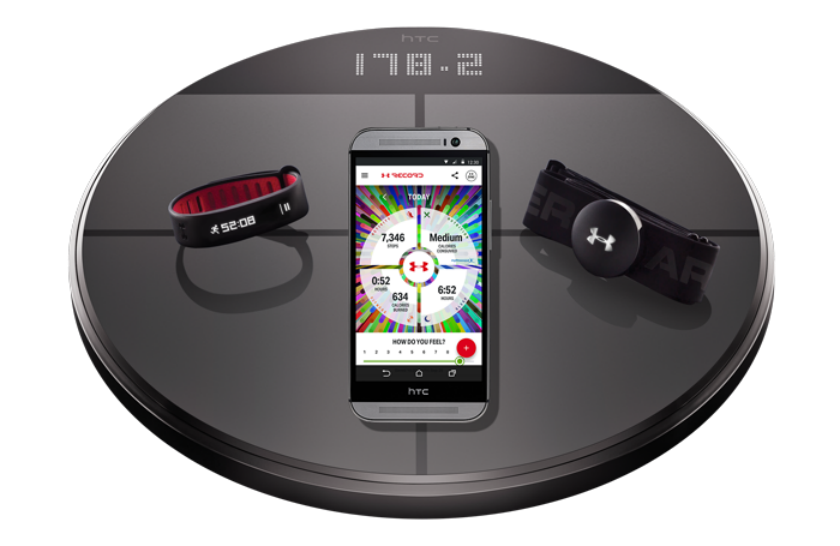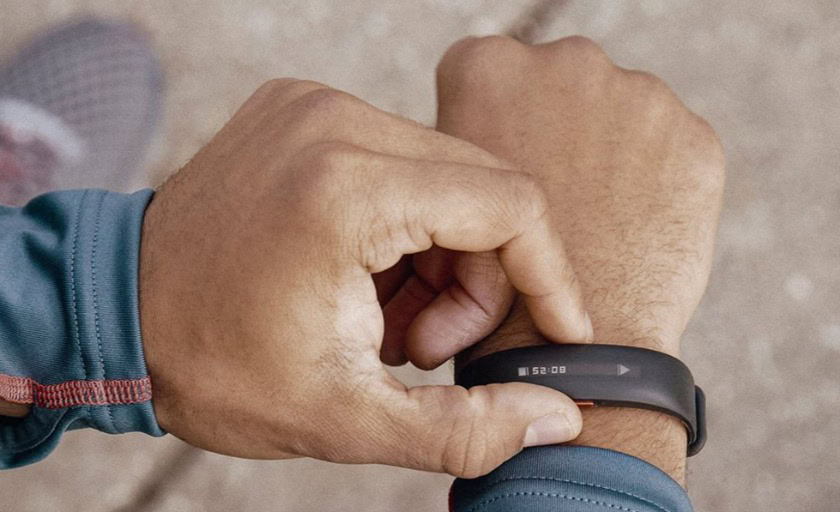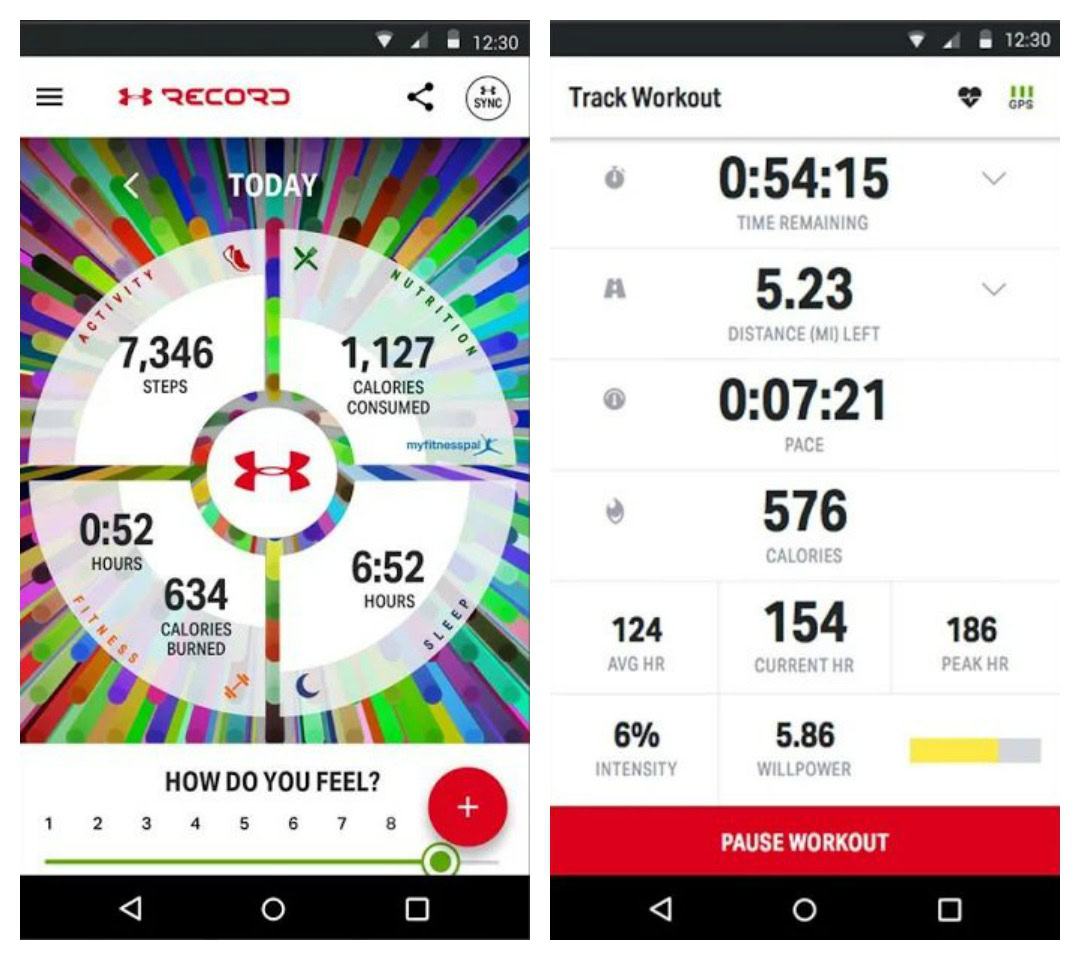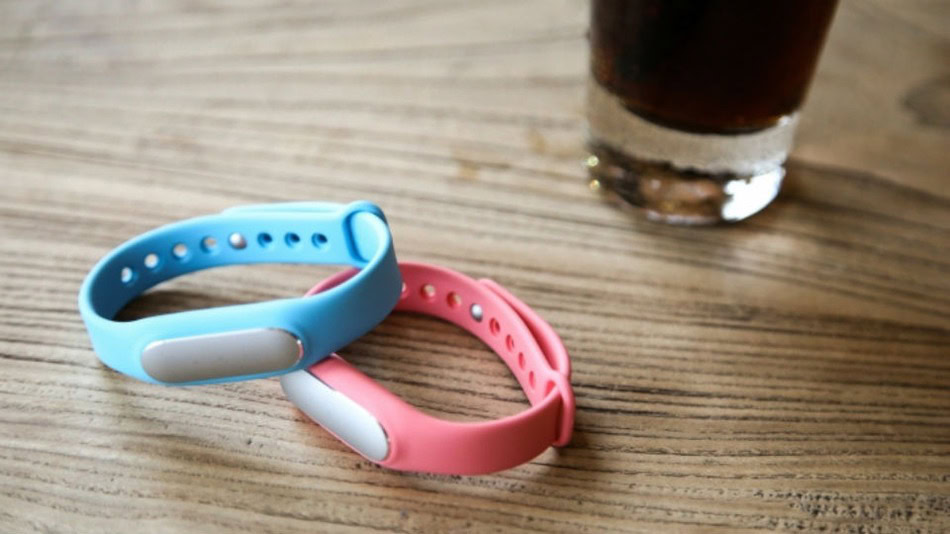Affiliate links on Android Authority may earn us a commission. Learn more.
HTC and Under Armour’s wearable collaboration revealed: the UA Health Box
Published onJanuary 5, 2016

We waited a long time for the HTC Grip to arrive, a GPS-equipped fitness tracker that managed to get itself lost along the path to consumer release. While the Grip may be permanently lost in the woods, HTCand Under Armour have finally announced the results of their wearable partnership: the UA Health Box, which contains not only a fitness tracker, but also a connected scale and heart-rate strap.
The star of the UA Health Box “connected fitness system” is the UA Band, a non-GPS equipped fitness wristband that tracks your heart-rate both while resting and during activities or exercise. It does all the usual fitness band things: sleep and heart-rate monitoring, step counting, inactivity alerts, vibration alarms and five-day battery life.

The Health Box also contains a Bluetooth heart-rate chest strap and connected scale (creatively called UA Heart Rate and UA Scale) that will wirelessly send your vitals to the UA Record app. UA Record is the glue holding this mish mash of connected gear together.
But quite a few other fitness apps have been acquired by Under Armour – MapMyRun, MyFitnessPal and Endomondo – to further strengthen the bonds between these devices. For example, you can log your caloric intake with the UA Scale in MyFitnessPal and keep track of your training runs courtesy of MapMyRun. All of this standalone data is then collated in UA Record.
But there’s more to UA’s connected health platform than just a wristband and scale. HTCand Under Armour also presented a couple of pairs of Bluetooth sports headphones at CES 2016: one with yet another heart-rate tracker (launching later this year) and another without. The more expensive set will sell for $250 and the base model will go for $180.

But this diversification strategy goes even further. Under Armour also debuted their first pair of connected sneakers: the Speedform Gemini 2. These $150 sneakers have an embedded sensor that will track your run without the need for a fitness band, smartphone or any other connected wearable. The battery will supposedly outlast the shoes.

As you can probably tell, there’s a lot of redundancy in this product portfolio, with multiple devices tracking your heart rate or distance travelled, meaning there’s no real reason to own them all. This is perhaps why the sneakers and headphones didn’t make it into the Health Box, which incidentally, retails for $400 and will be available on January 22. You’ll also get premium app subscriptions with the Health Box.

To buy the contents of the Health Box individually, you’ll need $180 for the UA Band or the UA Scale and $80 for the UA Heart Rate strap. While the products look great and Under Armour’s desire to get people more active is laudable, it’s uncertain how successful a move this will be for HTC, a company struggling with poor decision-making of late.
The strength of this new product portfolio is not likely to be the hardware itself. Nor will it necessarily be the idea of a connected health platform, because we can already synthesize all of our fitness data easily enough. No, it’s more likely to be the quality of the individual apps and the UA Record hub that is really going to make or break this idea.

HTC makes great hardware and Under Armour has a large enough huge user base to make this project viable. While none of these individual products are, realistically speaking, any better or worse than any others, the sheer variety of devices and the interconnected nature of the platform should give it the best chances of achieving its goal.
What do you think of the Health Box? Do you use wearables and apps to track your fitness?